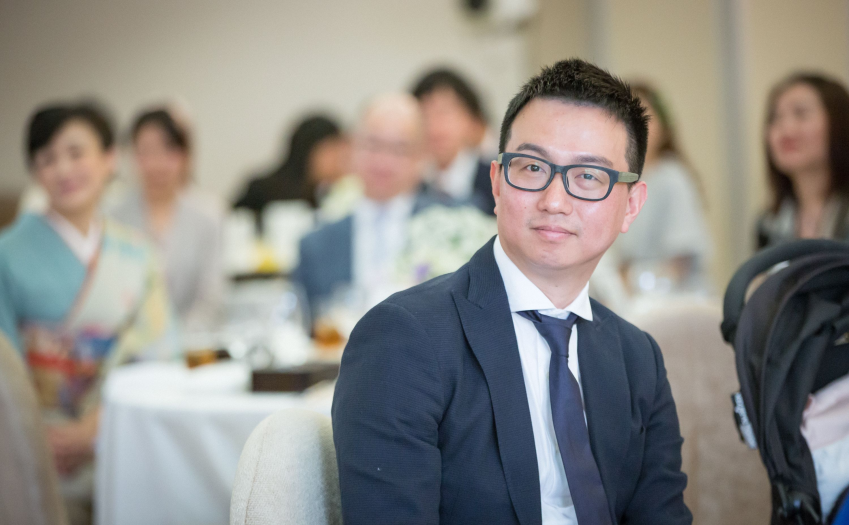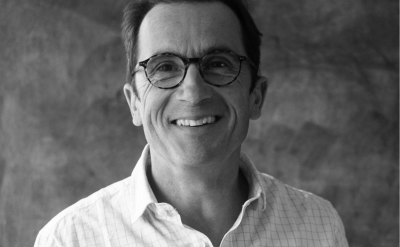News

Steven Wang, a career in logistics
Steven Wang is a Chinese national who came to France to finish his studies by joining a Master’s programme at SKEMA Business School. After starting his career in the fashion industry in China, today he is Logistics Director for LVMH Fashion Group in Hong Kong.
Why did you choose to continue your studies in France?
Steven Wang: I grew up in China and I studied International Business at Peking University. As a young graduate, I entered the workforce as a buyer in Shanghai, for an American retailer. After 4 years, in 2002, I decided I wanted to continue my studies. I’d always dreamed of studying overseas. I applied to several universities, including in Australia, and I was accepted into the Master’s of International Management programme at SKEMA Business School (formerly ESC Lille). Once I’d secured my visa I made my way to France, but after one semester I wanted to change my plan. I’d learned of another SKEMA Master’s programme that seemed to fit better with my initial training: a Master of Science in Supply Chain Management and Purchasing. I wanted to continue working in the procurement field. Thanks to my professional experience, I was able to join this programme.
Was the teaching different to what you were used to in China?
Generally speaking, in Chinese universities students listen to the lecturer and take notes. At SKEMA it was completely different. There are a lot of open topics, discussions, projects and assignments to work on in teams, presentations. I got the opportunity to do two internships that also taught me a lot. I started with 6 months in procurement at La Halle aux Vêtements in Paris. The job was pretty similar to the one I’d had in China: being in contact with the suppliers in China, negotiating prices, etc.
I then joined Okaïdi, a French brand of children’s clothing. There, I interned in the Logistics Department, in the warehouses. The language was a real challenge for me there. Master’s lectures and classes are held in English, so I’d never been confronted directly with the language barrier in Lille. But in the warehouses, employees rarely speak English or Chinese! A great deal of effort had to be made by all involved, using body language (laughs)... They were very kind to me and taught me a lot.
You were then hired by Okaïdi…
Okaïdi wanted to expand its operations in China and open a subsidiary over there. At the end of my 6-month internship, I was hired in Lille for one year to lay the groundwork. There was a lot of administrative work to be done, there were strategic choices to be made about the location of the office and the first stores, I had to hire people locally via recruitment agents, get in touch with accountants... In June 2004 I became the first employee of Okaïdi’s Chinese subsidiary, based in Shanghai from May 2005. I stayed there another 5 years. It was really interesting to develop this brand, whether on the logistics side or the administrative, marketing and development side.
At that time a whole host of ready-to-wear labels entered the Chinese market. What was needed to succeed?
Yes, foreign fashion brands like Zara, Uniqlo and H&M all arrived around that time in China. In 2011 I joined Gap, which had just arrived in 2010. I had the right profile to help them succeed in that market. As had been the case for Okaïdi, we had to put the structures in place, set up warehouse operations... The difference I noticed between Gap and Okaïdi was that Gap’s strategy was more aggressive. Gap invested a lot. They chose the best customer catchment areas and they quickly became very popular.
In 5 years of operating over there, Okaïdi didn’t achieve its initial objectives because they were a lot more cautious and their locations weren’t as good. I think that brand was still unknown to Chinese consumers.
Gap’s volumes were much larger. There were a lot more procedures. We applied SOP (Standard Operating Procedures) in the warehouses; each step was outlined in detail. I stayed there less than 3 years: there were about 4 stores in China when I arrived. When I left the company there were close to 100!
This rapid growth must have been a real logistical challenge!
Yes, our offices were in charge of China, but also of Hong Kong and Taiwan. I had to manage the goods arriving from our factories, but also the distribution to all our stores (inbound and outbound). My team had to be expanded: in the beginning I only had one person in my team, so I had to recruit. I became Senior Manager with a team of 5 people and I reported to an American. There was an intercultural aspect and my studies abroad helped me be more adaptable in this context. I was the liaison between my Chinese team and my American management.
After American management, you were once again exposed to a bit of French culture when you joined LVMH?
The American style is more direct, more aggressive. I do think that the French are more attentive to the general atmosphere and encourage teamwork. And the French are better at maintaining a good balance between professional life and private life. I think the time I spent in France gave me a better understanding of the French, the wine, the culture... (laughs) this has helped me and during my job interview at LVMH Fashion Group China in 2013 I was happy to see that I was going to be working in this business culture again. There are American, Spanish and Italian brands at LVMH, but it’s most definitely a French company!
At the Shanghai office I was in charge of logistics operations in China for our different brands of leather goods. The group enjoyed a strong uptick in sales during those years, particularly from 2015 onwards, because the average household income in China had risen significantly.
For a few months now you’ve been working in the Hong Kong office. Why the move?
It’s a company policy introduced by our Human Resources department. You’re encouraged to change markets, positions or product type (for example, move to cosmetics or to wines and spirits). It’s a way to keep learning. For example, where logistics are concerned there can be different particularities and regulations to know for the different types of products. In my case, an opportunity came up for me to move to our Hong Kong offices, in charge of Asia Pacific with the exception of China (head office in Shanghai) and Japan (head office in Tokyo).
From Hong Kong, we manage our South-East Asia markets (Malaysia, Thailand, Singapore, etc.), but also Australia and Korea. It’s complex because we have to take into account the different legislations, customs duties and so on.
I really like this new job. I’m in contact with different cultures; it’s more international. I manage a team in several countries, with different nationalities. It’s very rewarding. Life in Hong Kong is pleasant; my family joined me in January and we are enjoying this new life.
Do you have any advice for those wanting an international career?
To me, it’s important to have some kind of roadmap when making your career plans. When you’re young, you have to be adaptable and have short-term plans, but it’s also interesting to visualise where you want to be in the medium and long term. I wanted an international education and after a few years in the professional world I was able to go to France. From the very first months I was making contacts, networking; I wanted to let everyone around me know that I was available. In return, the people around you give you advice and suggest things. It’s important to connect with people, to get out there; you have to be proactive. I’m very happy with my experience overseas. I’m happy I got to meet so many interesting people..
Interview by Marie-Parlange (lepetitjournal.com) for SKEMA Alumni




